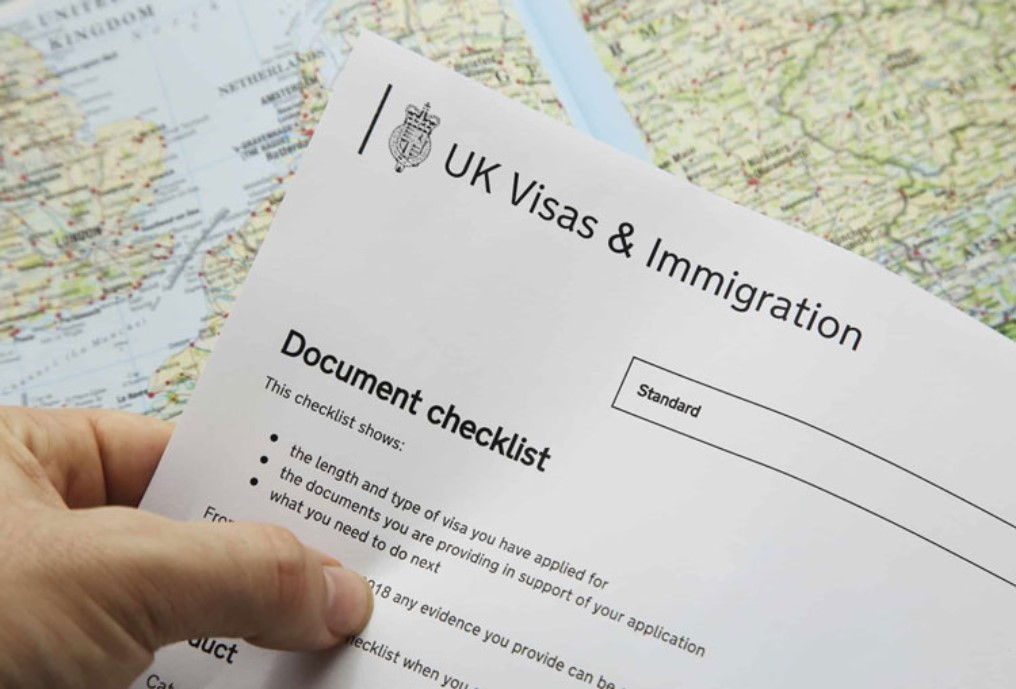Introduced by the home secretary, James Cleverly, RFUK claims the new MIR breaches the Equality Act because it will have a disproportionately adverse effect on women, members of ethnic minority groups, and young people…reports Asian Lite News
One of Rishi Sunak’s measures for cutting net migration is being challenged in the high court on the grounds that it is separating children from their parents and discriminates against women and minorities.
The Home Office has raised the minimum income requirement (MIR) so that anyone applying for a visa to bring a loved one from overseas must earn £29,000 a year, which will increase to £38,700 next year.
An application for judicial review has been filed this week by the pressure group Reunite Families UK (RFUK) saying that the measure is contrary to the UN convention on the rights of the child. The claim will question whether there was a sound legal basis for the increase and whether the decision was taken in line with official Whitehall advice.
Introduced by the home secretary, James Cleverly, RFUK claims the new MIR breaches the Equality Act because it will have a disproportionately adverse effect on women, members of ethnic minority groups, and young people.
The development comes after Sunak and Keir Starmer clashed over the net migration levels in Tuesday’s ITV debate. Both parties are promising to enact even tougher measures to cut legal migration, which stood at 685,000 in 2023.
The MIR increase was introduced in April and has been blamed for splitting couples of different nationalities and forcing families to separate, with most of the UK’s population earning too little to live in the UK with a foreign spouse.
Court documents will claim that it breaches the secretary of state’s legal obligations, which enact article 3 of the UN convention on the rights of the child. The planned increase to the MIR will result in many children being separated from a parent living abroad, because the British sponsor is no longer able to show the requisite level of income or savings, lawyers will argue.
Caroline Coombs, of RFUK, said: “The increases came as a complete surprise to the community we represent – and at a time when people all over the UK have been struggling with a relentless cost of living crisis.
“Whilst they have been working hard to earn and save enough to sponsor their partner, the government has punished them once again and for many, their dream of a family life together here has been shattered.”
Leigh Day partner Tessa Gregory, who represents RFUK, said: “Our client is appalled that a decision of such import appears to have been taken by the home secretary in such a cavalier manner: without proper analysis; and in breach of critical public law duties such as assessing the impact of the decision on protected groups.”
Sunak announced the rise in MIR in December while under intense political pressure from the right of the Conservative party over rising net migration.
A family visa is required for a British citizen or settled resident wanting to bring a foreign partner or spouse, and potentially children, to live in the UK together.
Until April 2024 the minimum income was set at £18,600. Currently, it is £29,000 with a plan reported earlier this year to raise it to £34,500 then £38,700 by 2025. Labour has indicated that it broadly supports the changes.
The Home Office was approached for comment but said it was a matter for the Conservative party because of purdah rules in the weeks leading up to a general election.
The Conservative party declined to comment, but party insiders insisted it was right that people who wanted to bring their family members to the UK were able to support them financially.

Leave a Reply